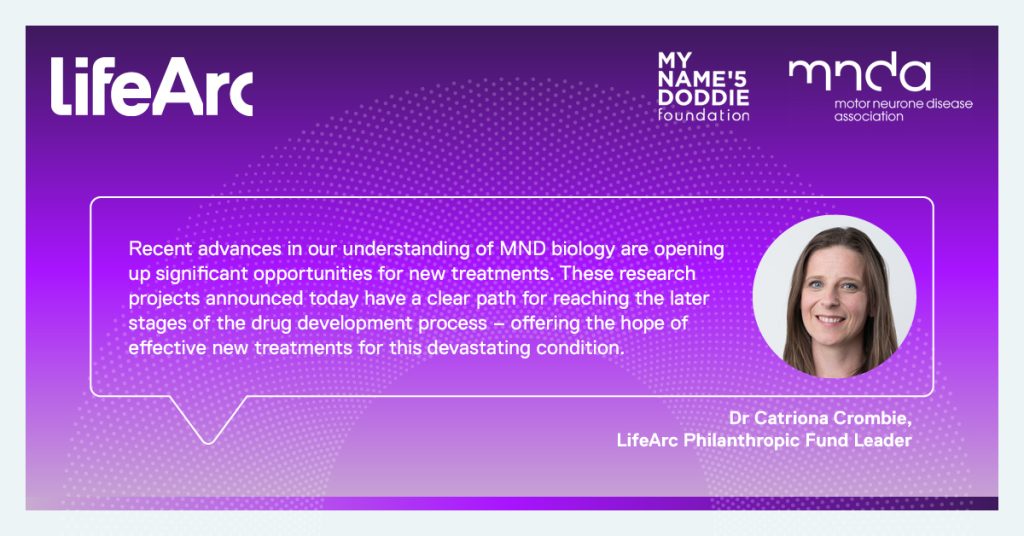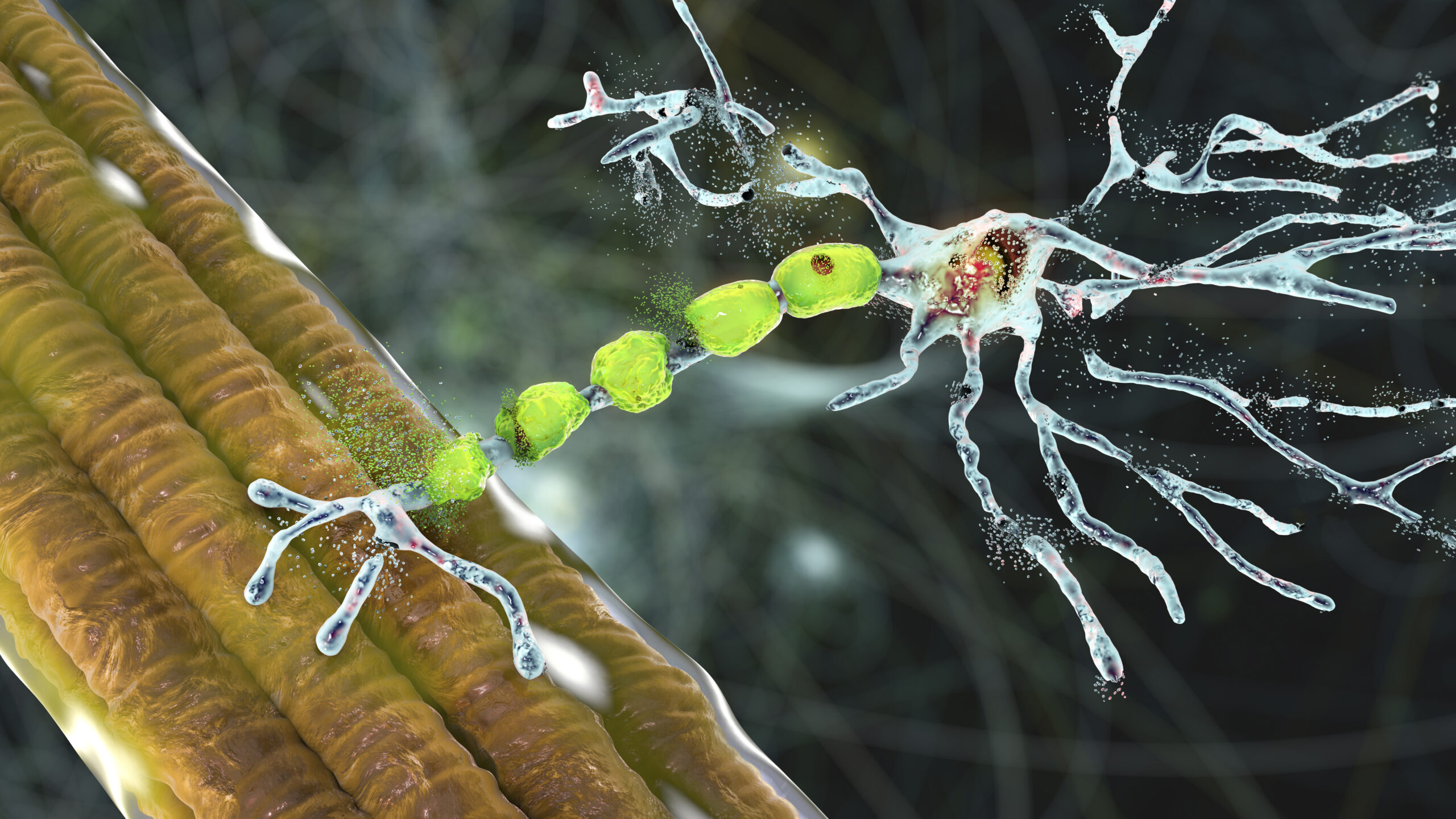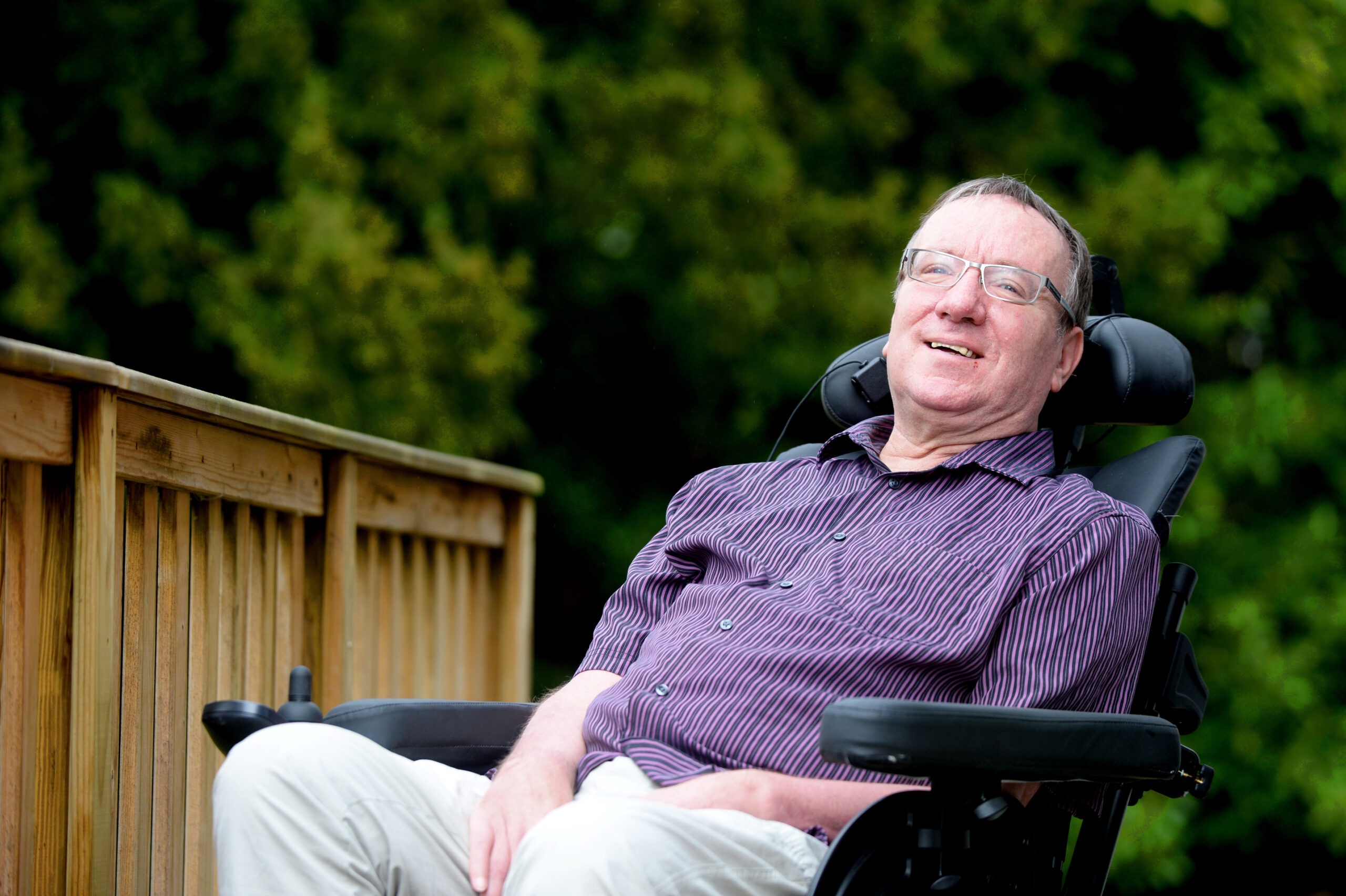- LifeArc, Motor Neurone Disease Association and My Name’5 Doddie Foundation jointly award £1 million to progress development of two pioneering new gene and cell therapy projects at University College London
- First research grants to be awarded as part of £1.5 million Motor Neuron Disease Translational Fund
London, 24 January 2023: Medical research charity LifeArc, the Motor Neurone Disease Association (MND Association) and the My Name’5 Doddie Foundation have jointly awarded £1 million to researchers at University College London (UCL) to progress two pioneering new therapies that could help transform the lives of those living with motor neuron disease (MND).
The research grants are the first to be awarded as part of the £1.5 million Motor Neuron Disease Translational Fund, previously established by the three organisations to accelerate research that could lead to the development of new treatments or the repurposing of existing treatments for MND.
The two projects announced today are in the field of gene and cell therapy. The first project, led by Professor Pietro Fratta of UCL Queen Square Institute of Neurology together with the Nucleic Acid Therapy Accelerator (NATA), aims to develop a gene therapy for amyotrophic lateral sclerosis (ALS), also known as MND. Using antisense oligonucleotides (ASOs), designed to rescue a specific gene lost during disease, the researchers hope to slow down, stop or reverse disease progression in ALS patients.
The second project, led by Dr Barney Bryson and Professor Linda Greensmith of UCL Queen Square Institute of Neurology, explores an innovative treatment that has the potential to restore lost muscle function and prevent further muscle wastage in MND patients. The team’s unique therapeutic strategy involves injecting light-sensitive motor neurons derived from genetically modified human adult stem cells into nerves that control muscles in the limbs, hopefully restoring function of the paralysed muscles in response to pulses of light.
Dr Catriona Crombie, who leads LifeArc’s Philanthropic Fund which funds research to advance new treatments and tests for rare diseases, said: “Recent advances in our understanding of MND biology are opening up significant opportunities for new treatments. These research projects announced today have a clear path for reaching the later stages of the drug development process, offering the hope of effective new treatments for this devastating condition.”

Dr Brian Dickie, Director of Research at the MND Association, said: “People with MND and their families consistently tell us that investing in research is their top priority, so we’re delighted to be able to channel funds from our supporters directly into these two exciting projects. The MND Association supported the initial scientific studies in the labs of Professor Fratta and Dr Bryson which have led to these grants, and we are thrilled to see their discoveries being applied to new, potential approaches to treatment. Our hope is that through collaboration, continuing public support and investment in cutting-edge therapies, we will find solutions to unpick the complex nature of MND and lead to an effective treatment.”
Sean McGrath, Medical Strategy Lead at the My Name’5 Doddie Foundation, said: “We’re fortunate to have exceptional researchers in the UK making great strides in MND research, and these two projects are examples of important work in the field that we’re delighted to support. Translational research is critical as it focuses on moving lab discoveries to outcomes that can deliver real benefits for patients. This investment in MND research aligns with our strategy at My Name’5 Doddie Foundation and supports our commitment to giving hope to those living with MND.”
MND is a neurodegenerative disease affecting the nerve cells in the brain and spinal cord. People progressively lose nearly all voluntary movement and need complex care, and around half of those diagnosed die within two years. Six people are diagnosed with MND every day in the UK and the condition affects around 330,000 across the world. There are currently no treatments that can cure the condition; the only licensed drug for MND in the UK has a modest effect on extending life.
Media contact
Andrew Stewart
Director of Communications




